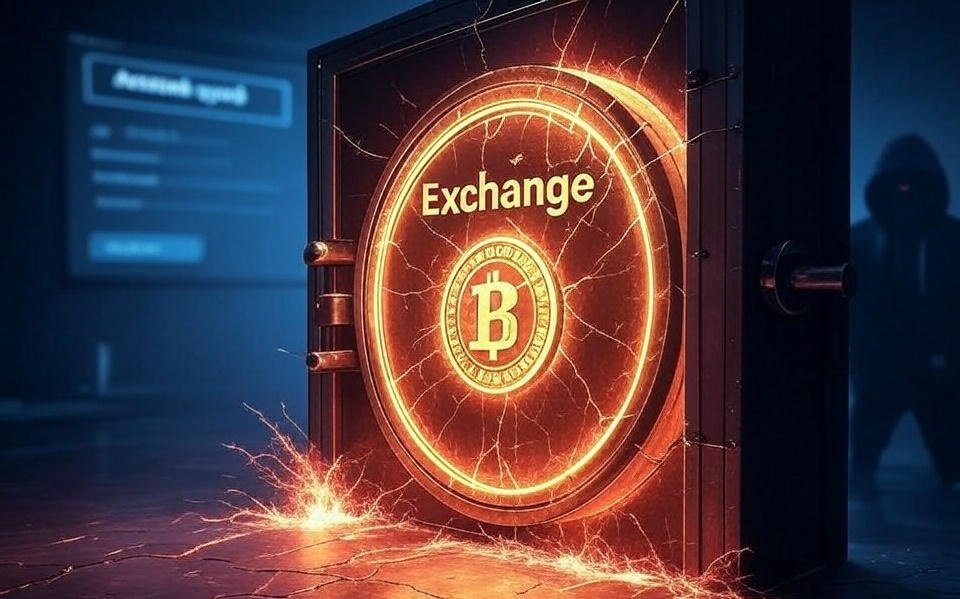⚠︎ Disclaimer: Cryptocurrency is a high-risk asset class. This content is for informational purposes only and does not constitute financial or investment advice. You may lose all of your capital. KoinGuide may earn a commission if you visit or sign up with a recommended provider via our affiliate links—at no additional cost to you. All recommendations are based on our independent reviews and evaluation process.
Why You Shouldn’t Store Crypto on Exchanges

For newcomers / pros, centralized exchanges like Binance or Coinbase seem convenient—intuitive interfaces, quick trades, and built-in tools make them appealing. But this ease comes with significant risks that can jeopardize your funds. Here’s why keeping crypto on exchanges is dangerous and how self-custody offers a safer alternative, with evergreen insights to protect your assets.
Honeypots for Hackers
Centralized exchanges are prime targets for cybercriminals due to the vast amounts of crypto they hold. Historical breaches, like Mt. Gox losing 850,000 Bitcoin in 2014 or Bitfinex’s 2016 hack, show that even top platforms are vulnerable. These incidents aren’t relics of the past—centralized systems remain attractive to sophisticated attackers. A single breach can wipe out user funds instantly, and no exchange is immune, no matter how reputable.
You Don’t Truly Own Your Crypto
Crypto’s core principle is self-sovereignty: if you don’t control your private keys, you don’t own your assets. On exchanges, your funds are held in custodial wallets, leaving you at the mercy of the platform’s stability, policies, or errors. Account freezes, platform bankruptcies, or operational missteps can lock you out of your funds—sometimes permanently. This isn’t theoretical; countless users have faced frozen accounts during disputes or platform failures.
Regulatory and Legal Vulnerabilities
Exchanges operate under local regulations, which can shift abruptly. Government crackdowns, like China’s 2021 crypto trading ban, have stranded user funds. Legal battles or bankruptcy proceedings can freeze assets for months or years, as seen in cases like QuadrigaCX. When you store crypto on an exchange, you’re exposed to these external risks, which are beyond your control.
Outages at the Worst Times
Market volatility is crypto’s hallmark, but exchanges often falter when you need them most. During price surges or crashes, platforms can experience outages, halting trades or withdrawals. These disruptions, even if brief, can lead to missed opportunities or significant losses in fast-moving markets. Reliability is critical, yet centralized systems frequently fall short.
Insider Risks
External hacks grab attention, but insider threats are equally damaging. Rogue employees, lax internal security, or mismanagement can compromise user funds. Cases like insider theft at major exchanges highlight that even trusted platforms can fail from within, undermining even the strongest external defenses.
The Self-Custody Solution
To mitigate these risks, self-custody is the gold standard. Hardware wallets like Ledger Nano X, Trezor Model T, or SafePal S1 store your private keys offline, slashing exposure to hacks. These devices give you full control over your assets, immune to exchange failures. For smaller amounts or daily use, software wallets like Exodus or Trust Wallet offer convenience when secured with robust measures like two-factor authentication. Multi-signature wallets, such as BitGo, add extra protection by requiring multiple approvals for transactions.
Protecting Your Seed Phrase
Your seed phrase is the key to your crypto. Store it offline—ideally on a durable, fireproof, waterproof metal plate—and never on digital devices or cloud platforms. Phishing attacks and poor storage practices have cost users entire portfolios. Split storage (e.g., keeping parts in separate secure locations) adds another layer of safety.
Key Takeaways
- Centralized exchanges are vulnerable to hacks, outages, and insider threats.
- Without private keys, you don’t own your crypto—exchanges control it.
- Regulatory shifts or legal issues can freeze or wipe out your funds.
- Self-custody via hardware or secure software wallets ensures true ownership.
- Safeguard your seed phrase offline with durable, secure storage methods.
Take control of your crypto to avoid the pitfalls of centralized exchanges.


